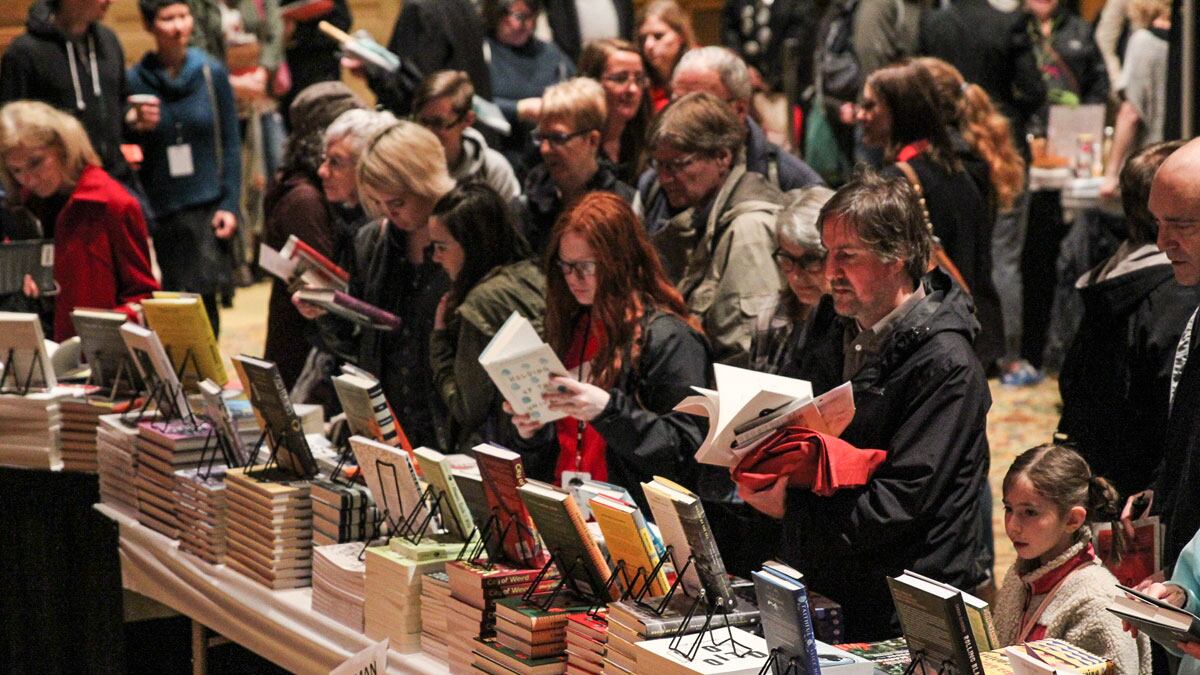WW presents "Distant Voices," a daily video interview for the era of social distancing. Our reporters are asking Portlanders what they're doing during quarantine.
Every day of the pandemic, Andrew Proctor, director of Literary Arts, asks himself the same question: "How are we relevant?" He's got a good answer.
"Literature has been here for thousands of years, it'll be here for many more thousands of years," he says. "Books were dragged along with soldiers and they were dragged along through pandemics. There's a reason people keep them so close."
The way Proctor sees it, Literary Arts' job, in effect, is to make sure literature maintains that significant place in people's lives. It's a mission the Toronto native inherited in 2009, when he came to the 36-year-old nonprofit following stints at Harper Collins and PEN America in New York, and helped expand the organization's reach through educational programs aimed at young writers.
And it's that mission that keeps him bicycling to the organization's empty downtown offices every morning, to tend to the computer server that powers its online writing classes and lectures. And it's that sense of purpose that makes him confident Literary Arts still be here a year from now.
He's aware that some projections predict half the country's arts organizations will go bankrupt, and acknowledges that, no matter what happens, the ecology of arts funding in America is going to change drastically. But as a self-described optimistic Canadian, he's not worrying about a future no one can accurately prognosticate yet—in fact, he's optimistic enough that he's still planning events for the fall, including the Portland Book Festival, the city's biggest literary event.
"We're really committed to 'one foot in front of the other' here," he says, "and not getting paralyzed by speculation."
WW talked to Proctor about the short- and long-term challenges that arts organizations face across the country, and why he thinks The Great Gatsby is worth revisiting right now.

